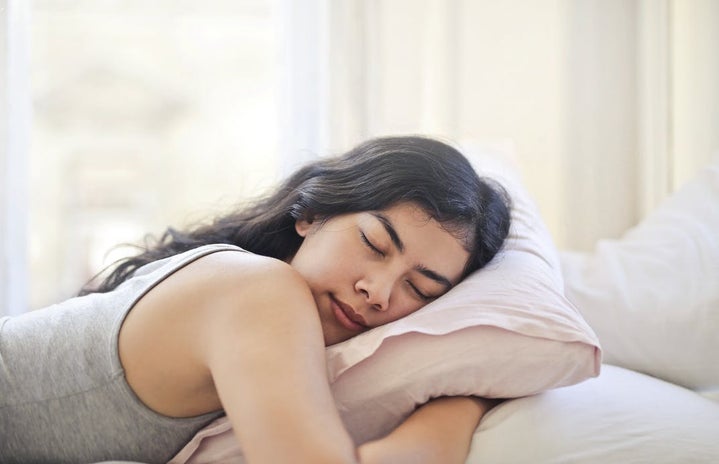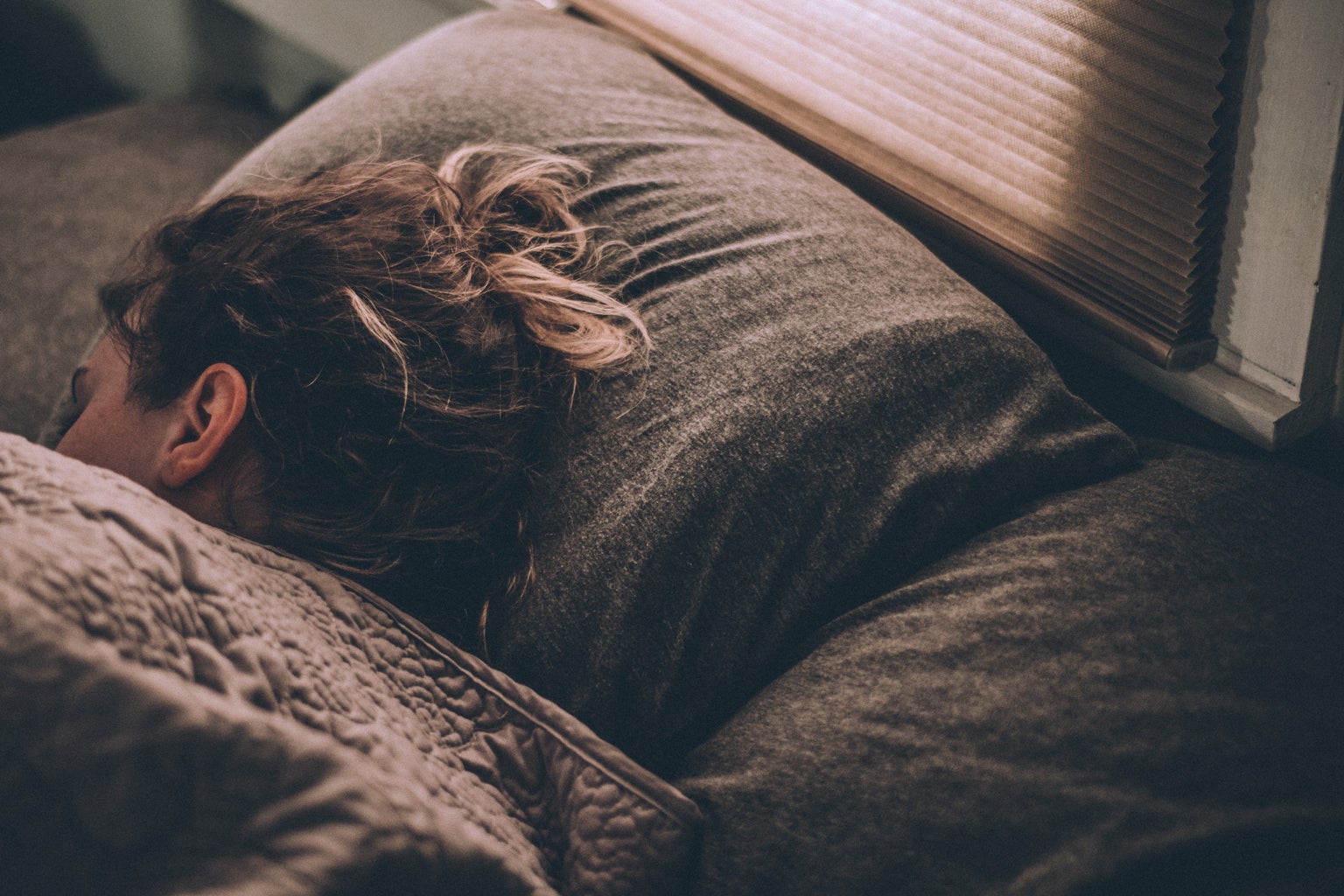As much as I hate to admit it, I would have to say one of my worst habits is my sleep schedule. Ever since high school, I have slept odd hours at night, barely getting any sleep and then proceeding to take a nap when I got home to try and make up for the lost time.
When quarantine hit, it just got worse. I went to bed between 2-4 a.m. almost every night, and I slept in too since I wasn’t doing anything. That sadly continued to my first year of college, and I really never corrected myself. With online classes, I always slept in as late as I could and would stay up very late as well. I knew I had time for naps, and it just screwed my rhythm up. When summer hit, let’s just say I was awake until 4 a.m. and asleep until 1 p.m. every day.

I love to sleep, and I value it so much. I have quite vivid dreams and always have to, so when I’m tired I just go to bed when I have the time. My body is weird in that I can always get up and go no matter how much or how little rest I’ve had. But if I go too long without a good amount each night, I start to feel really sick and worn down.
Now, this isn’t news; it is one of the major symptoms of sleep deprivation. I’m in the psychology class Sleep and Dreaming, and so far we have learned so much about how important it actually is to get consistent sleep each night. From the natural patterns and rhythms to the health effects, sleep is key for many important agents regarding our body and mind.
With school back in season, I’ve noticed the effects of my messed-up schedule more than ever. And this becomes prevalent when I get stressed with the amount of homework and things I need to do during the school year. I now have all classes back in person, and one of the classes starts at 9:30 a.m., which is really early for me. Waking up with enough time to eat, get ready and get to campus has been a very jarring difference from my summer mornings. I’m sure many other students are feeling the effects as well, especially the struggle to actually get out of bed in the morning, which is called sleep inertia.
My first few classes in my Sleep and Dreaming class have already taught me so much, though, and I realized the way I was going about my schedule was not healthy or good for my mind. I need sleep, especially if I am going to make it through a full schedule and hours of homework a day.
My class has taught me about the importance of getting through the different cycles at night. Your brain cycles through about four to five cycles a night, going from NREM Stage 1 to Stage 2, Stage 3, then REM (rapid eye movement). The cycle then repeats, and each cycle is about 90 minutes long. Reaching Stage 3 and REM is important for that deep sleep time where your body is most rested and furthest from awake. Without reaching that cycle consistently and a couple of times at night, your body isn’t getting the proper amount of rest that it needs.
Going for long periods of time without accurate amounts of sleep causes many symptoms including a decrease in pain threshold, an increase in appetite for carbs, and cognitive and memory issues. It affects important hormones in our body too. For longer deprivation, hallucinations can start as well. In summary, sleep is important, particularly for students.
Now, it’s not clear why we sleep exactly. There are many theories including cell regeneration or memory processing. While one single hypothesis has not been proven, there are many studies that do show that memory and neuronal circuitry with memories improve after sleep. Deprivation in sleep also has been shown to cause attention and memory impairments.
With all that has come out about sleep, one thing is clear, and that is college students need to sleep!
I know it’s hard with homework and studying. Trust me, I’m right there with you. But pulling all-nighters can actually be worse for your memory retention of the material you just learned. Sleeping right after studying and getting a good night’s rest can actually be the best thing for you to pass your exam.
But, if you can’t get enough sleep at night, naps are really great as well.
However, there are different kinds of naps like cat naps or hour-long naps. It can be hard to fit one into a busy day. Short naps are good for short bursts of energy, like a cup of coffee. But, unfortunately, the best nap for memory and sleep restoration is an hour and a half long nap. It’s when you hit that Stage 3 and REM stages that it’s best to go through a whole cycle. If you can get an hour and a half or longer in, then that will help!
While my schedule is still slightly messed up, primarily as a result of me getting lost on my TikTok For You page, I need to remember sleep is the best thing for me right now. My mind is constantly running with so much material and homework and so many extra activities and social things I need to do too. Life is crazy, but making at least seven or more hours of the day for sleep at night is essential.
I’m really trying to sleep more, following the advice of my teacher in my psychology class. This is by getting off my phone earlier at night and by making sure I have plenty of time for a good seven hours if I can before I have to wake up the next morning. I’m trying to wake up more consistently in the morning as well to help with that sleep inertia grogginess.
With school back in season, with early morning classes and studying, I really recommend everyone tries to actually sleep! There are so many articles and studies on how to better your sleep schedule if you really struggle.
But the best things you can start to do are just better time management of your activities and homework, trying to get off phones and computers before you sleep, and trying not to pull all-nighters!
I know I’ll be following some of these tips, and I can’t wait to learn more as the class continues this semester. I want to make sure I stay healthy and sane this school year, and that begins with fixing my sleep schedule.




